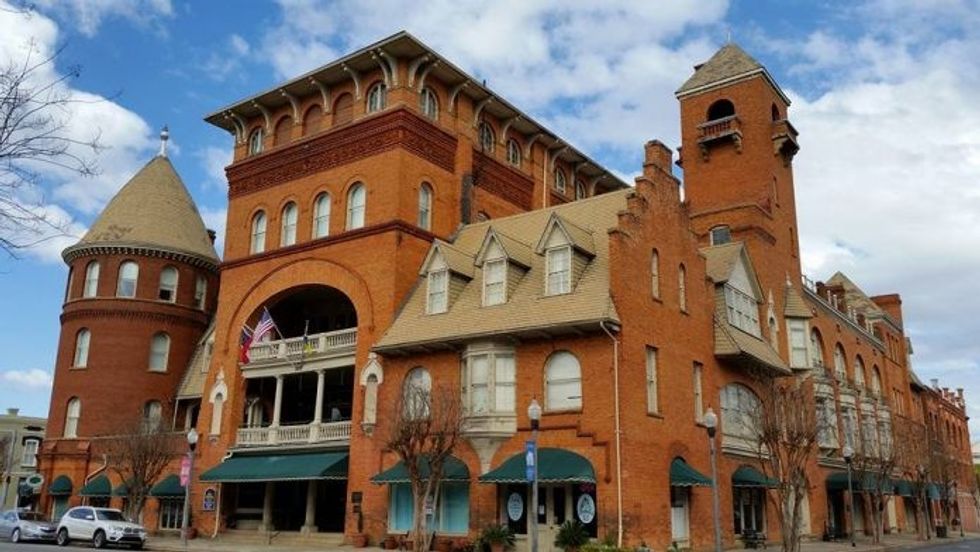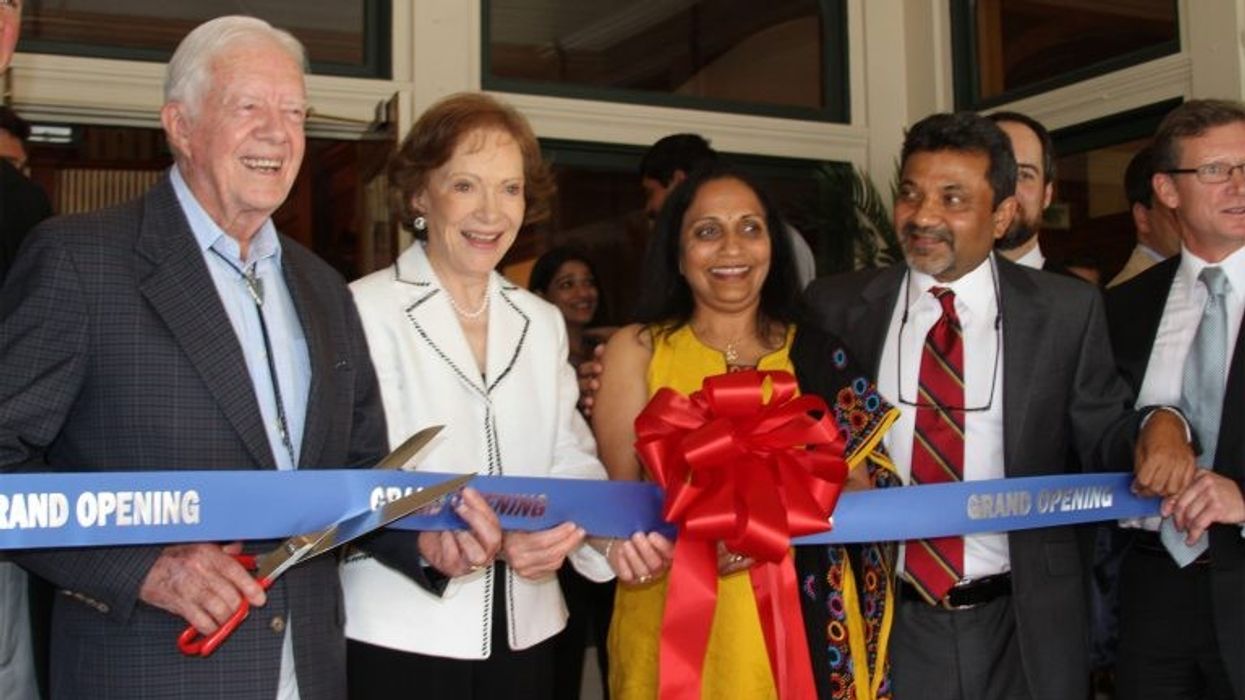THE PASSING OF former President Jimmy Carter on Dec. 29 left the nation in mourning. For Sharad Patel, it marked the loss of a longtime friend and inspiration.
Patel is the former owner and operator of The Windsor Hotel in Americus, Georgia, where Carter sometimes stayed. The ex-president was more than just a guest, however.
“So many good memories spending time with him, whether it's building houses for Habitat for Humanity or coming to the Windsor for dinner, or whether it's an Indian night or involving his project in Plains where he restored the Plains Inn.”
Carter, who was the 39th president of the U.S. and winner of the 2002 Nobel Peace Prize, was 100 when he died at his home in Plains, Georgia, according to his obituary. He the longest-lived president in U.S. history and is survived by his children, Jack, Chip, Jeff, and Amy, as well as 11 grandchildren and 14 great-grandchildren.

His wife, Rosalynn, died in 2023.
“My father was a hero, not only to me but to everyone who believes in peace, human rights, and unselfish love,” said Chip Carter, the former president’s son. “My brothers, sister, and I shared him with the rest of the world through these common beliefs. The world is our family because of the way he brought people together, and we thank you for honoring his memory by continuing to live these shared beliefs.”
Lending his fame
Patel owned the 126-year-old Windsor for more than 20 years before selling it two years ago. Born in Uganda, he had migrated with his family from the United Kingdom to the U.S. in 1993. He settled in Americus in 1996 with his wife, Ila, and sons Vic and Rushabh. The family owned and operated a conventional branded hotel but sold it before buying The Windsor after it had undergone a $6 million renovation five years earlier in a public-private partnership.
At the time, the hotel business was struggling, but Patel considered the hotel’s success as key to the economic survival of Americus. The hotel is listed as a “contributing property” in the National Register Americus Historic District and sanctioned by Historic Hotels of America.
“If the hotel closed, the whole town would be devastated,” he said.
In 2002 Patel needed something to boost occupancy. Carter and Patel had been attending a meeting together when Carter asked if there was anything he could do to help.
“I've never asked him for any favor, but that day, I said, ‘Yeah, Mr. Jimmy, I have a problem,’” Patel said. “He said ‘What is it?’ I said I give tours at the Windsor, mostly every day, and every one of [the tour participants] just would ask me a question when I take them to the Carter presidential suite, that President Carter and Mrs. Carter have spent a night here, and then I have to say no. We were sitting and Rosalyn Carter was standing on the side, and he turned his face, looked up and said, ‘Roslyn, we need to fix this problem.’”

The Carters were as good as their word, Patel said. They slept in the Carter Presidential Suite that still bears their name, adding their fame to the hotel’s history of stays by other historic figures including Congressman William Jennings Bryant, Franklin Roosevelt when he was governor of New York and the gangster Al Capone.
“[Carter] spent a night and we had an Indian dinner,” Patel said.
Eight years later, Jimmy and Rosalyn Carter on June 15, 2010, cut the ribbon during The Windsor Hotel’s grand-reopening celebration as a Best Western Plus. The interactions between the two families went beyond that.
An ongoing friendship
A desire to help others drew the two men together, Patel said.
“Yes, yes, he was an inspiration,” he said.
Their shared missions included multiple builds for Habitat for Humanity.
“They're all meaningful, but the most special was when we went to India and built houses in Lonavala, Mumbai, 100 houses in a week,” Patel said. “He's an inspiration for me. Every time you’re around him, it inspires you to become a better human.”
Another memorable occasion was when Patel invited classical sitar player, Nayan Ghosh and his son Ishaan to The Windsor.
“I asked him, because he always wanted to hear the sitar. He was fond of Ravi Shankar,” Patel said. “So it was in my mind that we would have something like that one day. We turned that into the charity event.”
About 80 to 90 people attended, he said.

“The money we collected was used for downtown beautification in President Carter's hometown,” Patel said.
Patel was still not living in the U.S. when Carter was president. However, over the past 32 years that he has lived here, Patel said, he has studied the nation’s politics.
“You have Republicans, and you have Democrats, and everybody becomes part of one for three reasons, either it's your ideology or you have a special interest, or you have both,” Patel said. “He was a Democrat by ideology, and he practiced that all his life and I see that. That was inspiring. He had no special interest.”
Patel acknowledged that Carter’s one term as president is poorly remembered due to events such as the Iran hostage crisis. However, he said Carter handled that crisis in the morally correct manner.
“He did not want it to spill one drop of blood,” Patel said. “If it had been any other president they would have bombed Iran.”
Carter was a true Democrat by ideology, Patel said.
“He was not a hypocrite,” Patel said.
Carter was buried in a private ceremony in Plains. Patel paid his respects during a ceremony at Army Fort Moore, formerly Fort Benning, near Columbus, Georgia, where the former president’s body lay in state on its way home.
The Windsor is now owned by Edgewater Group LLC, led by founding partners Ketan Vora and Robert Brier. In 2023, the hotel joined Choice Hotels International’s Ascend Hotel Collection following a multi-year renovation.






